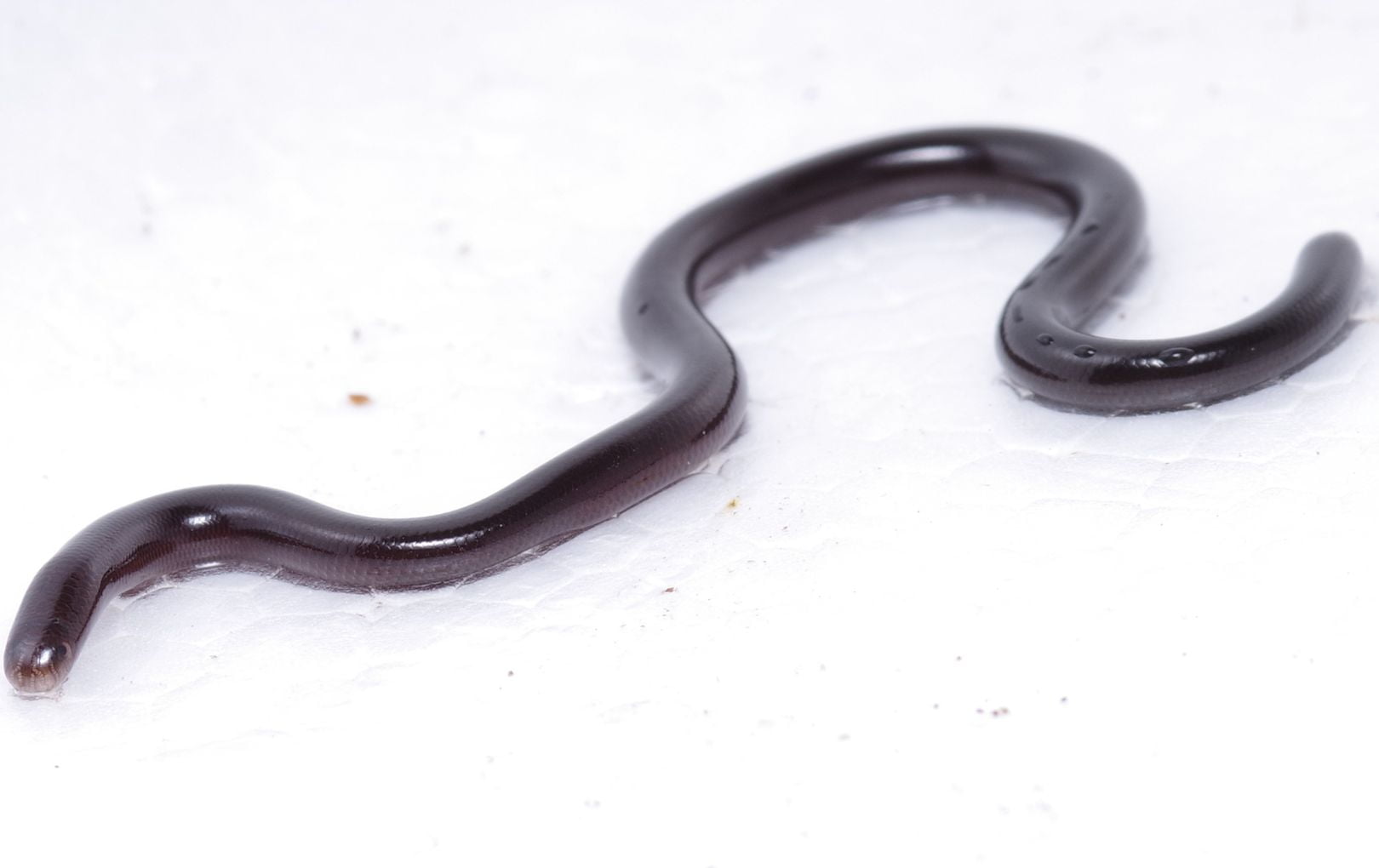How this tiny snake could change our view of genetics
Wednesday, Apr 02, 2025 • Katherine Egan Bennett : contact

The flowerpot snake, one of the world’s smallest snakes, has some unusual distinctions. Also known as the Brahminy blind snake, it's the only known snake species with three sets of chromosomes instead of two—and it can reproduce without a mate.
By analyzing the flowerpot snake’s unique genome, scientists at The University of Texas at Arlington are uncovering how the tiny reptile repairs its DNA and prevents harmful mutations. The findings, published recently in the journal Science Advances, provides valuable insights into genetic repair mechanisms that could deepen our understanding of human gene evolution.
“This DNA repair and replication activity supports a fascinating mechanism called premeiotic endoreplication, a process through which the snake duplicates its chromosomes before dividing them, sidestepping the need for the typical pairing of chromosomes seen in sexual reproduction,” said Matthew Fujita, a professor of biology at UTA and a co-author on the paper along with researchers from China and Myanmar. “This mechanism allows the snake to produce offspring that are exact genetic clones of itself.”
The flowerpot snake’s genetic and reproductive quirks may also provide insights into human trisomy conditions, such as Down Syndrome.
“For example, we know that having multiple sets of chromosomes is rare for animals, yet flowerpot snakes survive just fine with three instead of the normal two humans have,” Fujita said.

Using advanced genomic technology, the research team discovered that the flowerpot snake, native to Africa and Asia, has 40 chromosomes, organized into three subgenomes. These subgenomes formed through complex genetic events, including chromosome fusion in ancestral species. The researchers hypothesize that this genetic structure enables the snake to reproduce without needing sperm from a male partner.
One major question the scientists explored was whether this reproductive strategy comes with evolutionary drawbacks. Asexual species typically struggle because they lack genetic shuffling, which helps eliminate harmful mutations over time. However, the flowerpot snake appears to have developed a way to counteract this risk. The researchers believe its slow but steady evolutionary pace helps limit the accumulation of harmful mutations.
They also examined how genetic variations across different flowerpot snake populations suggest chromosome exchanges between the subgenomes. These exchanges appear to balance genetic diversity and stability—maintaining enough variation for adaptation while preventing incompatibilities that could disrupt reproduction.
“The study also revealed something unexpected—many of the flowerpot snake’s immune-related and sexually selected genes, such as those involved in sperm development, have lost their functions,” Fujita said. “This finding provides key insights into how reproduction without a mate works in reptiles, but it also reshapes some of our long-held views about the limitations of asexual species. Rather than being an evolutionary ‘dead end’ as researchers have thought, the flowerpot snake shows how nature can innovate and adapt in extraordinary ways.”
Latest News
- Ice-T shares hard-earned wisdom with UTA studentsDuring a master class with students, the rap legend and TV star spoke candidly about humility, hustle and how he turned early struggles into success
- UTA's 23 patents strengthen UT System's No 3 rankingResearch contributions help boost the UT System’s position among the nation’s top innovators in patent technology
- UTA professor explores healing power of musicInspired by Alzheimer’s-stricken Glen Campbell, UT Arlington’s Rhonda Winegar explores how music therapy can support neurological care
- Drone duel puts UTA's UA tech to the testStudents from universities in three states faced off at Maverick Stadium in a competition focused on precision and innovation
- Ice-T brings his story to UTA’s Maverick Speakers SeriesThe iconic rapper, actor and author will discuss his rise from the streets to stardom
- Four UTA faculty named NAI Senior MembersNational Academy of Inventors recognizes their groundbreaking work in chemistry, engineering and health care






